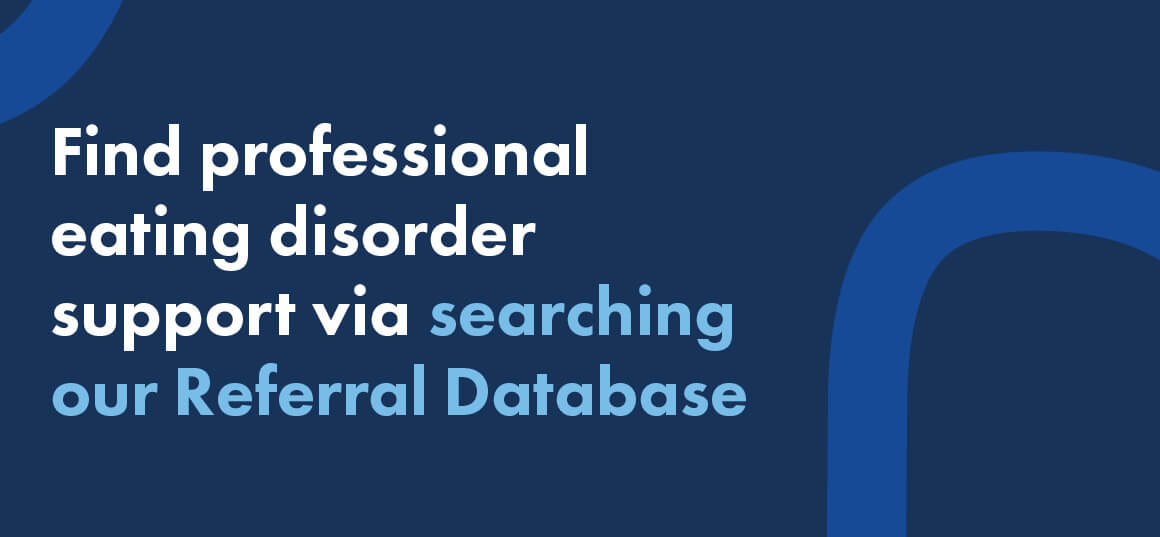How to approach someone
If you suspect your friend may have an eating disorder and want to know how to raise the subject, this page is for you.
If you have a friend who is already getting help for an eating disorder, and you want to know how you can support them, you may find our page How to Support a Friend more helpful.
When should I approach someone?
It is common to feel nervous or unsure about approaching a person about their eating and exercise behaviours. You might feel like you are intruding or fear it might make them angry or upset.
However, if you are concerned that someone you know might have an eating disorder, the sooner you discuss your concerns with them the better. Any delay in seeking treatment can lead to serious long term consequences.
Before you approach the person, try to talk to someone who has a good general knowledge on eating disorders. You can call the Butterfly Support Line to speak to a trained professional about how you might go about raising your concerns. Butterfly can also provide you with a list of contacts and telephone numbers your friend can use to seek help or treatment.
Plan when you are going to approach your friend; choose a time and place to meet that is private, quiet and comfortable. It is generally better to meet with the person one on one to avoid overwhelming them. Try not to raise your concerns when they may be feeling angry, emotional, tired, or frustrated. Also try to avoid bringing it up at mealtimes, or in a situation where they are surrounded by people or food.
The way in which you raise your concerns will depend on your age and your friend’s age. It will also depend on how well you know them, and how severe you think the problem is. Here are some general tips:
- Discuss your concerns with the person in an open and honest way, aiming to be non-judgmental, respectful and kind.
- Try not to focus solely on weight, appearance or food. Instead, focus on your concern for their health and how they are feeling and behaving.
- Try to use ‘I’ statements that are not accusing, such as “I am worried about you because”, or “I’ve noticed that…” rather than ‘you’ statements such as “You are making me worried”.
- Avoid blaming anyone (your friend or their family) for the problem, and avoid making assumptions about the reasons why.
- Explain that their behaviours indicate there is a problem that needs help, and probably professional attention.
- Let them know you are raising your concerns because you care and want to support them. Reassure the person that they are deserving of help and your friendship or love, and let them know you want them to be healthy and happy.
- Offer to assist them in getting the help they need, but be careful not to overwhelm the person with information and suggestions, or make promises you can’t keep.
- Be aware that you may find it tough to listen to what they have to say, especially if you do not agree with what they are saying about themselves.
- However they react, it is important that you stay calm.
- Remember that you don’t have to know the answers. You are there to raise your concerns and to provide support, not to fix the problem.
Be aware that your friend may react in a variety of ways: positively or negatively.
For example, they might feel relieved that someone has noticed they are not coping and admit straight away they have a problem. Alternatively the person might become defensive, tearful, angry or aggressive, and deny there is an issue. It is also possible that the person may need time to absorb your comments and concerns, or have a delayed reaction.
However your friend reacts, be aware that it may take more than one conversation to get them to hear you seriously. Keep trying to support them as best you can.
If the person reacts negatively it is important not to take their reaction personally. Avoid arguing and try not to express disappointment or shock. Resist the temptation to respond with anger as this may escalate the situation. Instead, be willing to try bringing it up again at another time.
Tell your friend they have just made the first key step towards recovery. Encourage them to talk with a parent or trusted family member about their problem and see their GP to get a referral to a professional working with eating disorders. Continue to offer as much support as you can. Suggest your friend also makes contact with the Butterfly Support Line for free information and counselling.
Let’s talk
Eating disorders can be hard to detect because they cannot be identified by someone’s size or shape. If you feel concerned about someone you know, Butterfly can help support you to approach them. Call our free and confidential Helpline on 1800 ED HOPE (1800 33 4673), chat online or email.



















